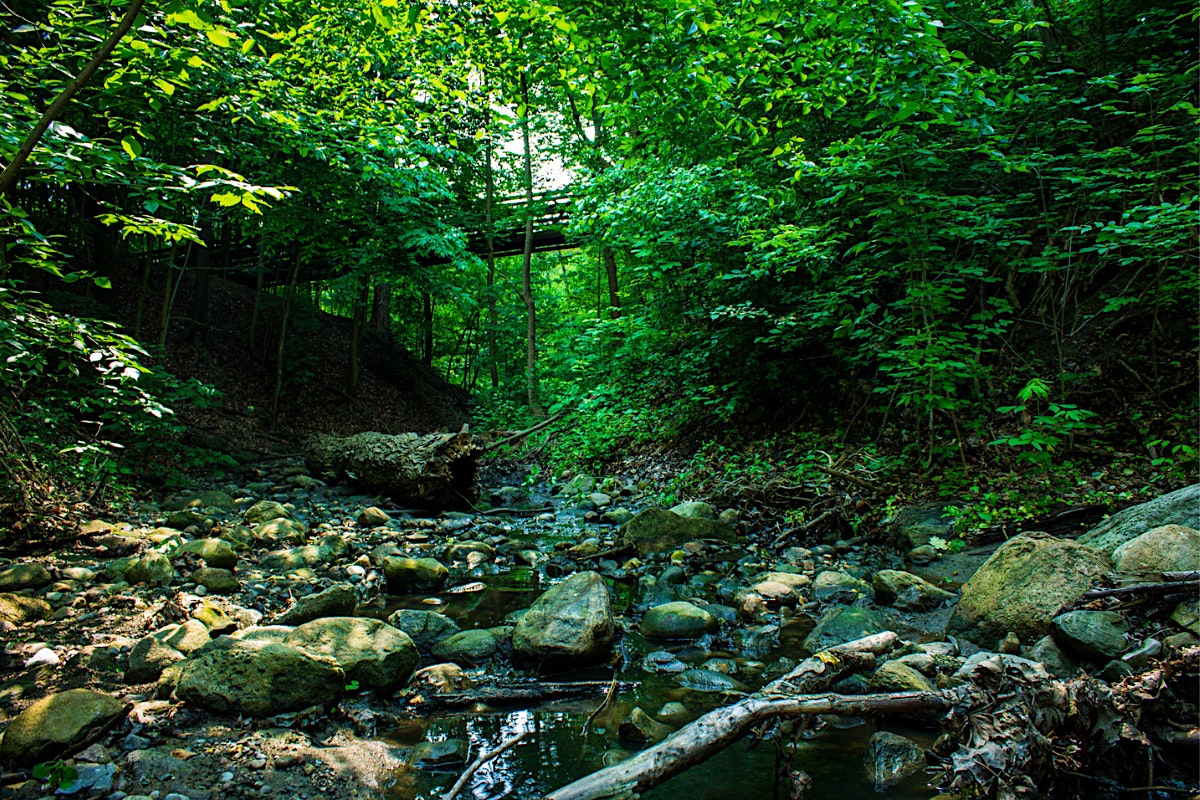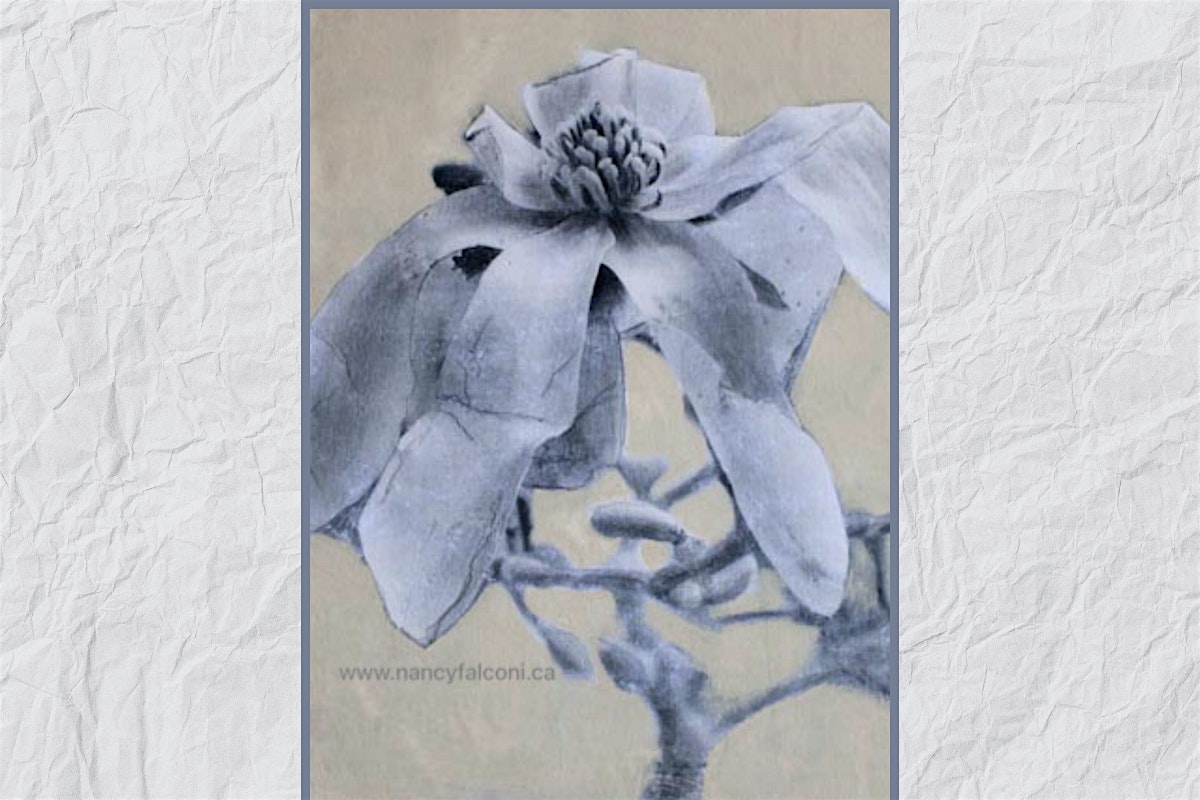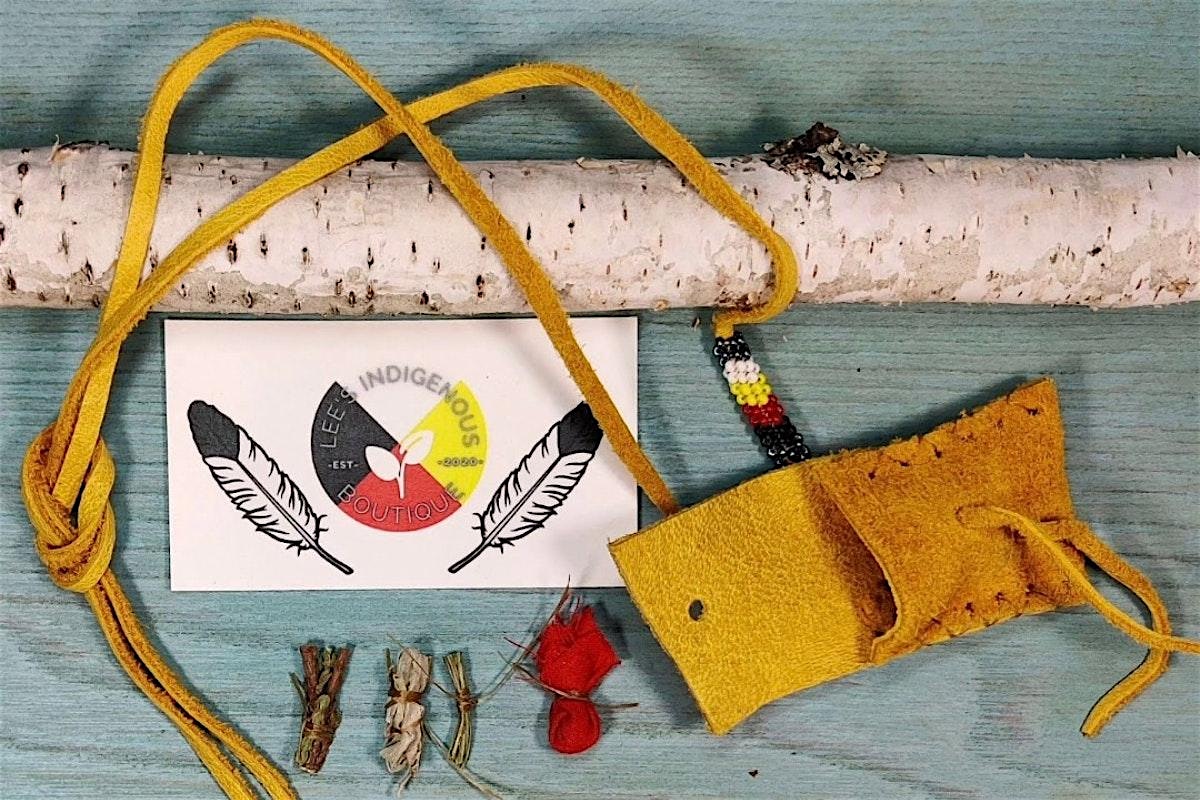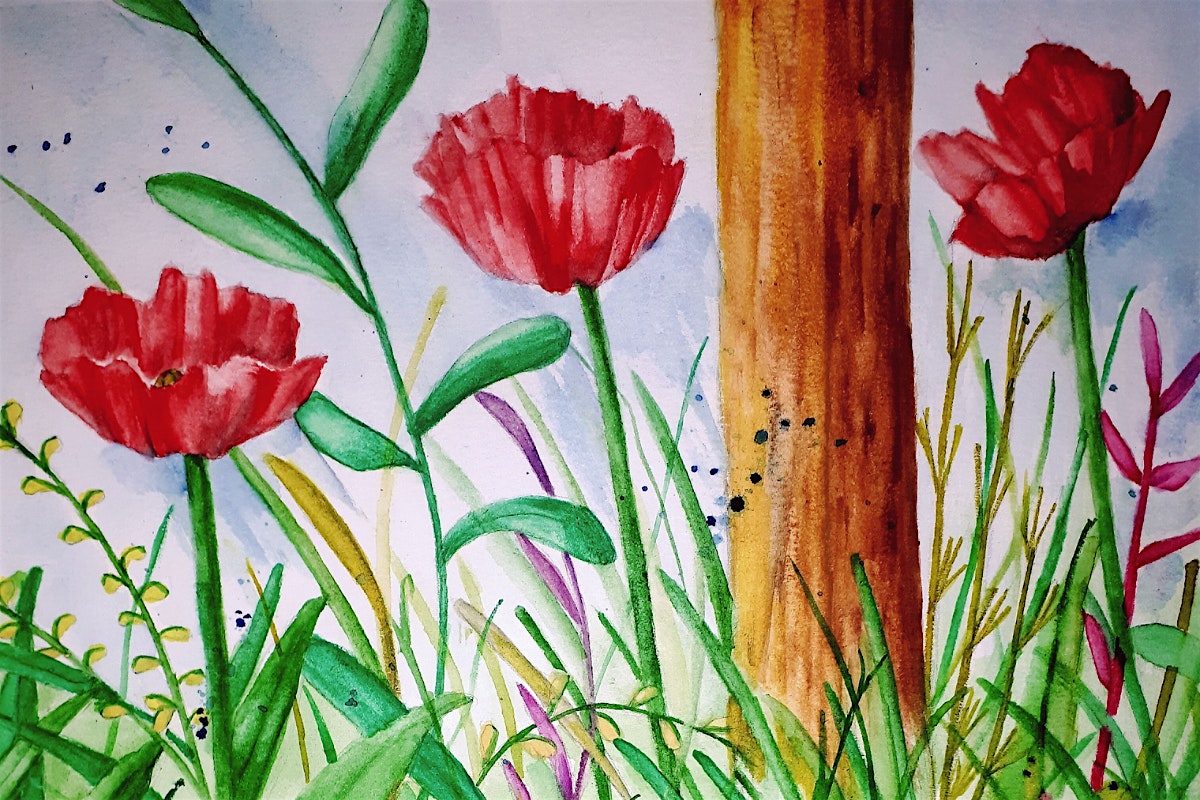
- This event has passed.
Urban Ravine Symposium: Unravelling the Question of “How”
November 3, 2023 @ 9:00 am – 5:30 pm

The Urban Ravine Symposium at the Toronto Botanical Garden is back! Started in 2016 as a way to bring professionals, advocates, and passionate community members together to learn and connect over Toronto’s incredible ravine system, the Urban Ravine Symposium is back in person in 2023 to explore answers to the question of ‘How’.
Friday, November 3, 2023
Characterized by Carolinian woodland and small creeks, the deep ravines that give Toronto its moniker, ‘City Within a Park,’ face challenges, including invasives, erosion, and inundation. And we ask, How do we foster inclusivity, engagement, and scientific inquiry in Toronto’s Ravine System? How do we identify the challenges? Are all ravine systems facing the same issues? Who controls the space, access, and belonging? How can we welcome those who have been excluded? How can we identify technical environmental challenges? How can we share our strengths to get more done together? The goal of this symposium is to begin a conversation, pose more questions, and share tangible answers to these questions so we can begin to care for the ravines and bring our communities together.
REGISTRATION NOW OPEN
- Student – any person registered at a secondary or post-secondary institution; $44 (Early bird $35)
- Non-profit, equity deserving, or community group; $75 (Early bird $60)
- Member–TBG member; $119 (Early bird $95)
- Public; $150 (Early bird $120)
2023 Urban Ravine Symposium Agenda
BIBLIOGRAPHY: Toronto Ravines Bibliography
Lunchtime chats will highlight new research and findings and the the afternoon a panel discussion will include representatives from the City of Toronto, Park People, Toronto and Region Conservation Authority, as well as community group leaders to guide us through the theme of collective action.
REGISTRATION
Includes: morning reception, networking opportunities, presentations, workshops and educational engagement, and optional hike and social.
https://www.eventbrite.ca/e/urban-ravine-symposium-unravelling-the-question-of-how-tickets-664549002957?aff=oddtdtcreatorFeatured Presenters
Belonging and Challenges

Carolynn Crawley
Msit No’kmaq

Jaqueline L. Scott
Black Outdoors

Danijela Puric-Mladenovic University of Toronto
RETURNING HOME
At one point in time all our Ancestors were in a deeper and more meaningful relationship with the Earth that was culturally specific to where they were located. But throughout history people have been violently separated from that relationship. Today many Indigenous peoples around the Earth are still engaged in a respectful and reciprocal relationship. Carolynne Crawley from Msit No’kmaq and Turtle Protectors creates opportunities for people to reflect and return home to that relationship. She will speak of the multiple possibilities to connect with the ravine systems in Toronto to create a sense of belonging along with understanding ones’ individual and our collective responsibility to reconcile with these areas through our language and actions.
Carolynne Crawley, founder of Msit No’kmaq, is Mi’kmaw, Black, and Irish. She is from Mi’kma’ki territory, also known today as Nova Scotia. But Tkaronto has been her home since a young child. She is dedicated to social and environmental justice and supporting Indigenous led community work related to Indigenous food ways and food security. Carolynne is passionate about reconnecting people with the land, waters, and all beings as there is no separation between us. Carolynne leads workshops for the public and the private sector which support the development and strengthening of healthy and reciprocal relationships based upon Indigenous knowledges that Indigenize existing interactions with the land and by deconstructing colonial and capitalistic thoughts, language, and actions.
Carolynne is one of the founders of Turtle Protectors, a new initiative led by Indigenous Elders and community members to advocate, protect, and support turtle relations and their kin in High Park. She is also a certified Forest, Blanket Exercise Facilitator, a Holistic Nutritionist, Storyteller, a Co-Producer of the documentary Reckoning with the Wendigo, and a member of the Indigenous Land Stewardship Circle. Carolynne has built school food gardens and has worked in food security for twelve years. Previously, Carolynne worked as a Child & Youth Worker for twenty years. She can be found speaking at events that center around social, food, and environmental justice.
LIVING NEAR IS NOT THE SAME AS HAVING ACCESS
The ravines are there, are free, and most are easy to reach by public transit. There are ravines near where most Black and other people of colour live in Toronto. However, who has access to the ravines is more complicated than simply living close to them. The presentation explores how race, power and privilege shapes who has access to the ravines. It includes tips on how to work with Black communities to increase their sense of belonging and connection to nature in the ravines.
Jacqueline L. Scott is a PhD candidate at the University of Toronto, OISE, in the Department of Social Justice Education. She is a fellow at the Safina Center. She volunteers as a land steward, and as a hike and bike leader with outdoor clubs. Jacqueline leads Black History Walks in Toronto. Black Outdoors is a blog about her academic journey and outdoor adventures. She enjoys hiking, canoeing, cycling, and skiing. These things make her happy. A PhD was the perfect way to combine her love of the outdoors and get out of her mid-life funk. Her research is on the perception of the wilderness in the Black imagination. In other words, how to make the outdoors a more welcoming and inviting space for Black people. It is part of a larger research project on the links between race and nature. She is the author of travel and adventure books, from a Black perspective, 50 Places: A Black History Travel Guide of London, Heartbeats in Africa: A memoir of travel and love, and Sailing on a Half Moon
TORONTO’S RAVINES: A GREEN LEGACY CONNECTING PAST, PRESENT AND FUTURE
Toronto is one of a few cities blessed with an extensive system of natural areas. Toronto’s ravines symbolize the link with the lost landscape and forests, and yet they are the green pillars of today’s and future cities. They are mosaics of the remnant vegetation, secondary and novel vegetation established on agricultural or degraded lands. Each ravine’s patch, stand, or plant reminds us of what has been lost, our impacts on land and vegetation, what we could have, and what we could lose. Plant communities, species composition, and structure of Toronto ravines are indicators of change and reflections of historical and present influences and our individual impacts.
The importance and biodiversity values of Toronto’s ravines will only grow with increasing urban-induced and environmental pressure around and within them. Monitoring plays a pivotal role in safeguarding the conservation and restoration of this delicate vegetation. By systematically observing changes within these ecosystems, we acquire essential insights that guide the conservation, restoration, management, and stewardship of this fragile and fragmented vegetation.
Danijela Puric-Mladenovic is an assistant professor at the University of Toronto’s Faculty of Forestry. Her research and professional work focus on forests in settled and urban landscapes. Her work and research are aimed at providing real-world solutions and tools that support strategic conservation, restoration and integrated spatial planning of green systems, vegetation and forests in urban, peri-urban, ex-urban and rural/agricultural landscapes and their interfaces.
A limited number of accessibility tickets for students and those working at not-for-profit organizations are available on a first-come basis.
Details
- Date:
- November 3, 2023
- Time:
-
9:00 am – 5:30 pm
- Event Categories:
- Adult Education, Ravines
- Website:
- Visit Website



